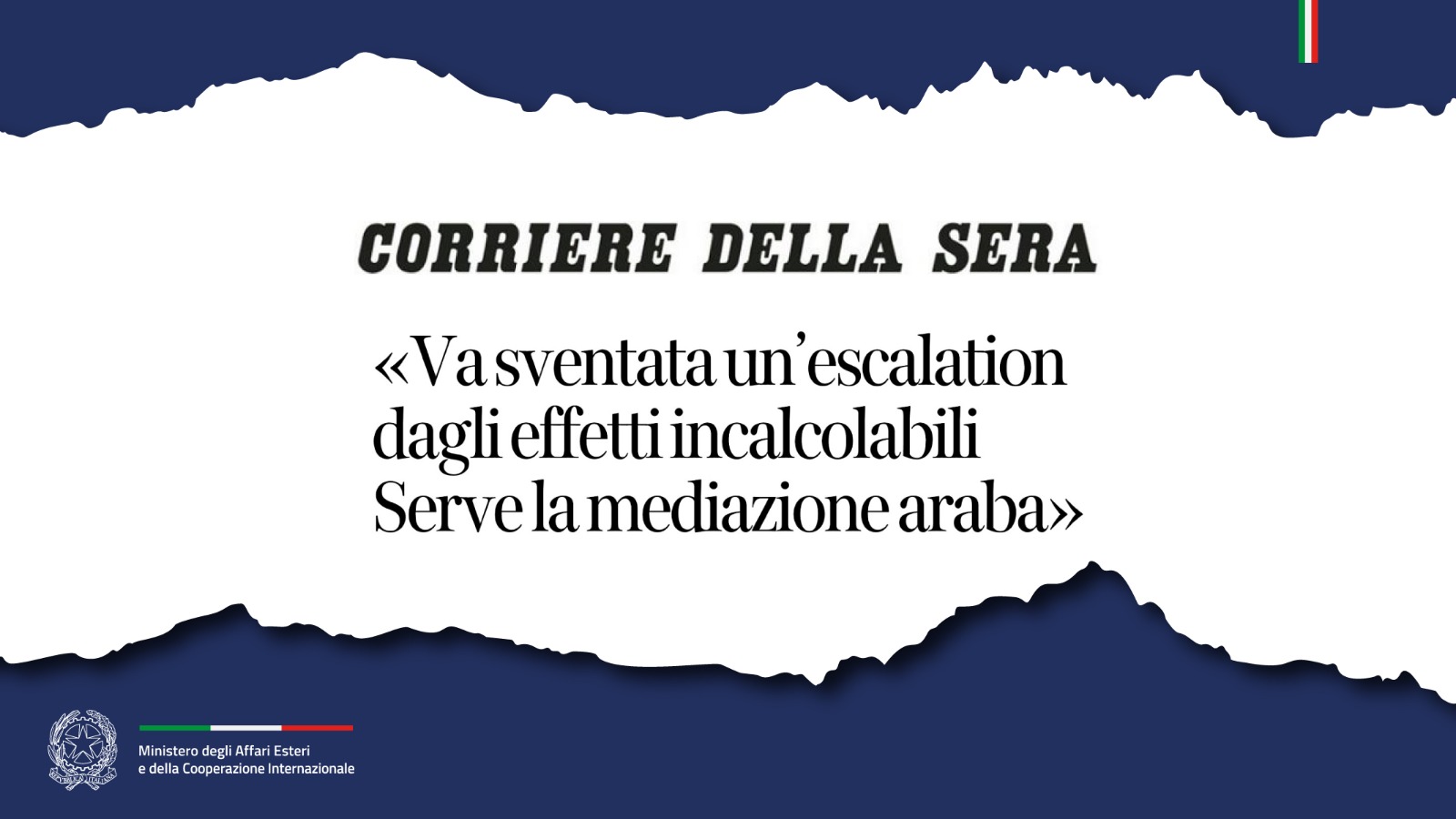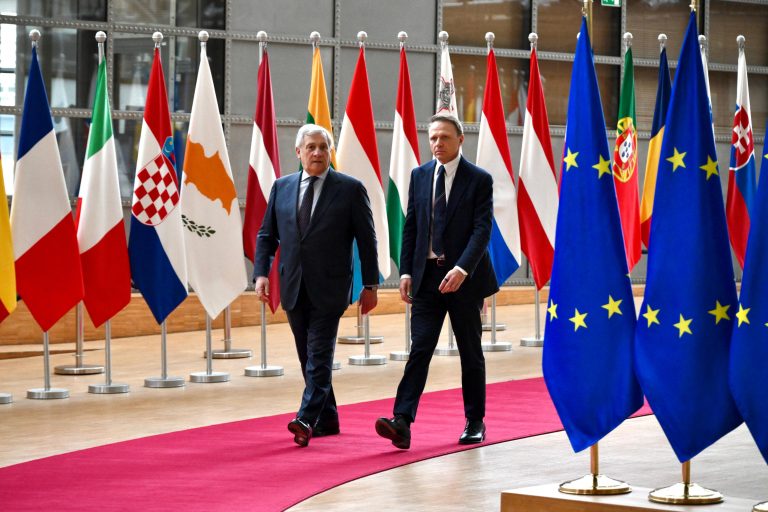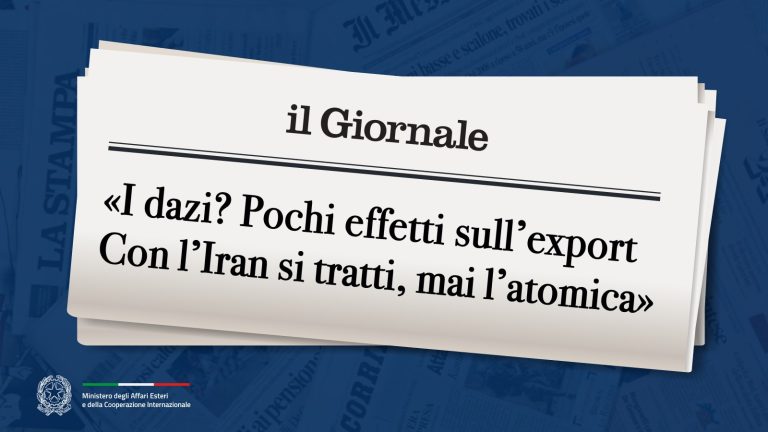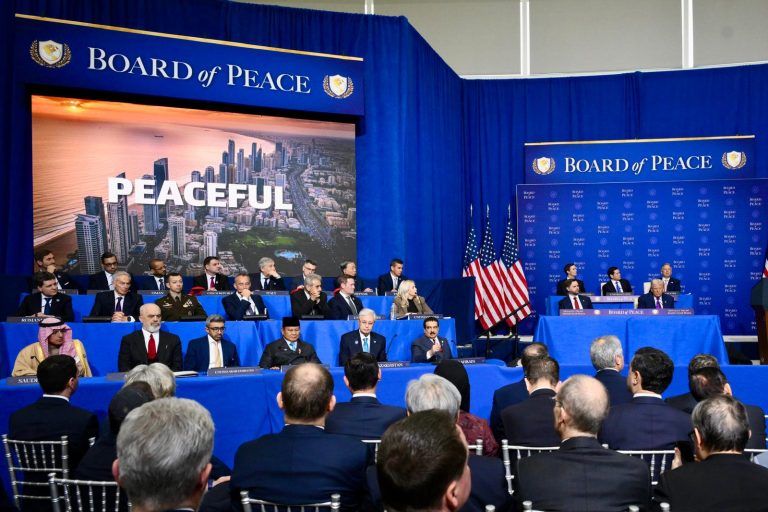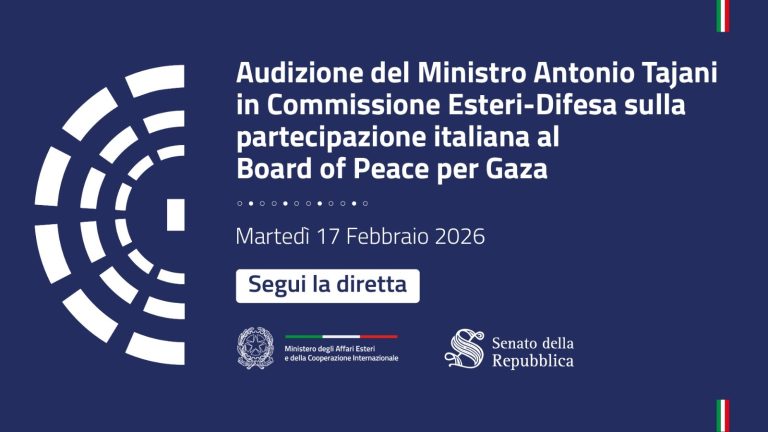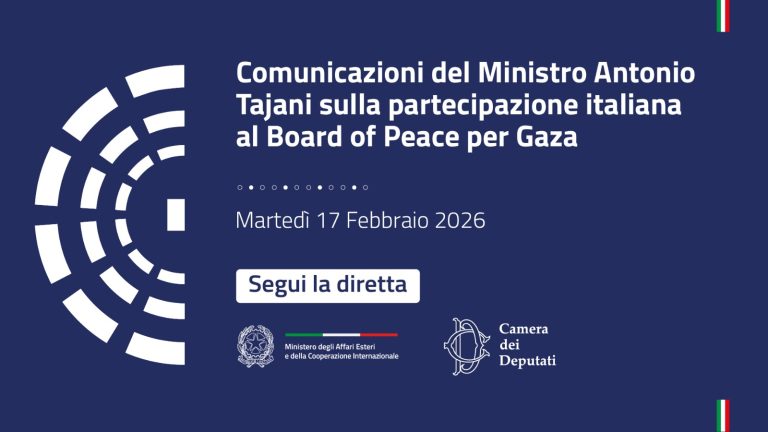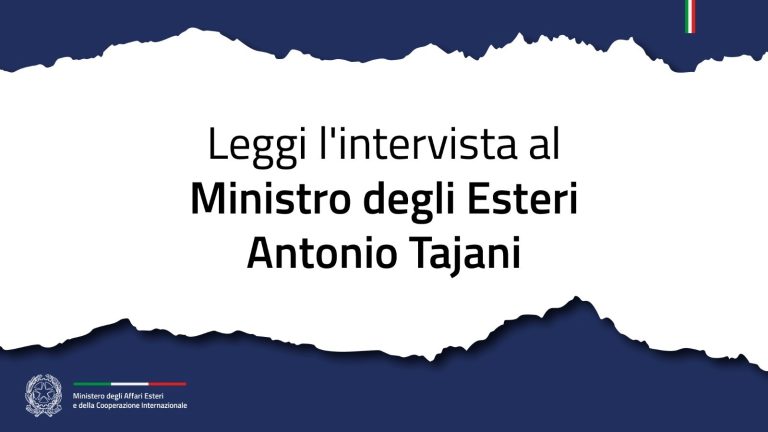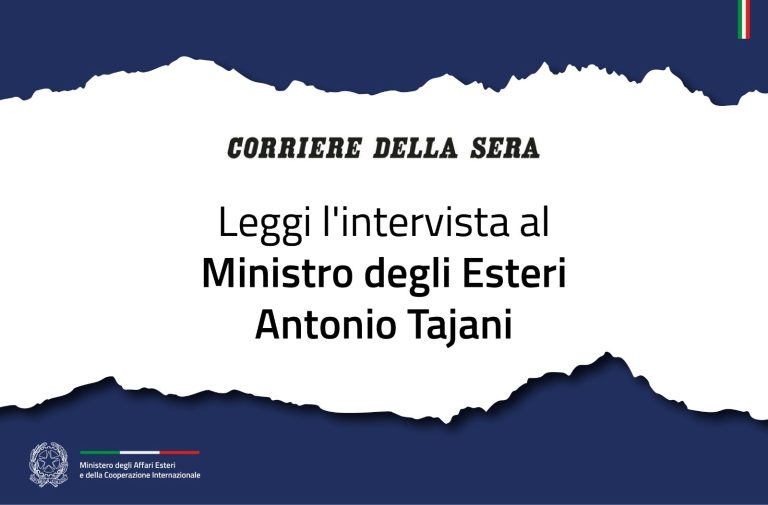On the side of Israel and its people, who are suffering a “monstrous” aggression against defenceless civilians, women, children, the elderly, and not a mere act of war or terrorism. Italian Minister of Foreign Affairs Antonio Tajani has no doubts as to what Italy’s position should be in the conflict that has just erupted in the Middle East; indeed, he believes and hopes that on this issue “politics, the parties, majority and opposition, will not be divided: what we see in, what we know about, and what reaches us from those lands is so intolerable that no one will be able to deny their solidarity with Israel”. At the same time, however, he and the Italian government are committed to achieving a diplomatic solution to the crisis and an immediate, lasting de-escalation, because the risk of an expansion of the conflict, with effects that are hard to imagine in terms of their severity, is very high.
Does this mean that you will side with Israel even if the reaction will be, as announced, harsh?
“I want to be clear. The aggression perpetrated by Hamas on Israeli soil must be condemned in the strongest terms. Moreover, we recognise Israel’s full right to defend itself, all the more so in the face of an aggression such as this one, which is shocking the world because of the ferocity and brutality of acts against civilians and not military actions, such as the vilification of corpses.”
Is there a “but”?
“But, at the same time, the risk of an escalation must be averted which would have incalculable and uncontrollable consequences at the regional level, which would compound an already very difficult picture in other areas of the world, starting with the conflict in Ukraine. In the Middle East, the complex dynamics of a region in a state of flux must be duly taken into account.”
And how do you avoid escalation?
The Israeli reaction is likely to be harsh, with more bloodshed on both sides. “The situation paradoxically calls for bringing the peace process back to the centre of international attention. We are ready to work to facilitate the reduction of tensions, as already achieved at the beginning of the year with the Aqaba and Sharm el-Sheikh understandings, and the subsequent resumption of a political perspective.”
What direct channels do you have, what kind of convincing work can Italy do so that the conflict does not deflagrate?
“I personally have already spoken with both the Israeli Minister of Foreign Affairs Cohen and with my Egyptian counterpart Shukri and the Jordanian Minister of Foreign Affairs Ayman Safadi, to hope for a dialogue that will lead to a lowering of tension; on Wednesday, I will be on an official visit to Egypt to meet President Al-Sisi. We are counting a lot on Saudi Arabia, Jordan and Egypt, the latter having effective communication channels with Hamas, so that they can mediate.”
What could be done, at least in the immediate future?
“First of all, humanitarian corridors should be allowed in the Gaza Strip to secure children, women, civilian hostages, who have nothing to do even with a war scenario. Moreover, none of the moderate countries want there to be any extension of the conflict, which is even more risky if one considers the possible welding between the actions of Hamas and Hezbollah in neighbouring Lebanon: a country that is itself in the grip of a profound political crisis, which the involvement of the “party of God” could precipitate, further destabilising Lebanon and the region.”
Such a conflict would have dire consequences. What are your fears?
“It is extremely worrying to see Iran’s attitude, with people jumping for joy at the massacre of defenceless citizens. Unfortunately, it does not help the stalemate in the Peace Process, nor the perceived crisis of consensus of the Palestinian Authority — but also of Hamas itself — among its citizens.”
And just what role can Italy play? Can siding too much on Israel’s side — as with the flags of that country displayed by institutions, including Palazzo Chigi — make mediation more difficult?
“We have always been for a policy of “two peoples, two states”, we are well aware of the complexity of the situation, we have also had dealings with the Palestinian Authority, which has acknowledged this. At this time, however, we cannot but be on the side of those who are being so vilely attacked, of a suffering people – the Israeli people. One thousand people are already dead, killed with indescribable ferocity. Obviously, the situation once again raises the need to give priority attention to relations with the Mediterranean and Middle Eastern area, the focus of Italy’s interests and at the centre of international debate on issues ranging from energy to immigration. It is precisely for this reason that we also intend to place this issue firmly on the table of the Italian presidency of the G7 in 2024.”
Are you acting in concert with other countries, to exert more pressure?
“We maintain constant contact with international partners, starting with the US, and with regional actors constructively committed to advancing the dialogue between the parties. We have met with the quintet — US, Germany, Italy, France, Great Britain — to coordinate positions, we are always ready for any initiative to precisely avoid escalation.”
Do you fear repercussions also in Italy?
“Every sensitive target is protected, we are very careful and we do not register any particular alarms at present, but it is obvious that every security measure is being taken. As to the Italians in Israel, there are 18,000, many with dual nationality, a thousand are in the army, a dozen in Gaza, 500 in Israel among tourists and non-resident workers. Our Crisis Unit is always active and we are ready for any possible help.”
Within this framework, the feeling is that there is less attention being paid to the Ukrainian front. Is international, and also Italian, support cooling off? What are you going to do with the next shipment of aid for military support to Kiev?
“No, Italy continues to support Zelensky, doing what is within our possibilities. We will evaluate an eighth aid package, we will see what the contents will be, the government will determine them. We will do our part as far as we can, and we will work together with the United Nations for peace that is just.”

